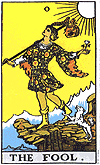Okay, transformational specialists, here's the plan.
For the next three weeks your goals are to:
1.) replace less nutritious foods in your diet with more nutritious foods and choose some categories to eliminate this month
2.) reduce the total amount of food you eat every day and simplify your diet
3.) examine and refine your lifestyle for health
4.) read Pamela Serure's 1997 book
3 Days to Vitality and verify it with your own research
Here are my suggestions for each goal.
1.)
Remember, you're not starting from zero. However unhappy you may be about your present weight, you're not stupid. You've gathered useful information about food and diet and yourself all of your life. I am not a fan of "everything you know is wrong" approaches (to anything.) Use what you know and learn more.
Plus, information about food and nutrition is so available and diverse that it's often contradictory and confusing. Somebody loves carrots, somebody thinks they're nothing but sugar bombs.
So, use these three weeks to boost and refine your sense of personal power. You are an adult and have the ability to judge what's good for you: read, reflect, practice.
Just for reference, I'll tell you my typical diet is made up of fruits and vegetables (raw and cooked), lean meats, whole grains, healthy oils and some animal fats, nuts and seeds, various spices and herbs, cheese and yogurt, and teas.
Here are the specific food adaptations I will make to my diet March 1 - 27:
- I will eliminate all sugar-sweets, fried foods, alcohol, pasta and breads made from refined flours, butter and cheese. To be honest, the sugar-sweets, refined flours, and fried foods will be no problem, since I quit eating them last year and I'm no longer addicted to them.
- I will gradually reduce caffeine, because the program won't allow it.
The more I read about food, the more exciting a subject it becomes. I love food. A lot of good work is being done regarding nutrition, gastronomy, traditional foods, etc. and there's a lot out there of interest.
When evaluating your diet for nutrition, open your mind to new foods and new ways of preparing them. For instance, in the last year I've included a lot more sea vegetables in my diet (watch for recipes on this blog) and have begun fermenting vegetables and making my own yogurt. I'm convinced (based on study and practice) that these adaptations to my diet are providing me with more of the vitamins and minerals I need. Right now, I'm interested in what I've read about the value of bone broths, and I'll probably start trying them out.
Nutrition in foods is not just related to what kind of food they are (carrot vs. twinkie), but also how they're grown, how fresh they are, how they're prepared, and how and when they're eaten. Study up.
Look into vitamins and supplements - I take a liquid multi-vitamin, calcium (per Dr.'s orders), flax oil and fish oil. I also have an aspirin every day for inflammation caused by obesity, as recommended by Dr.s Oz and Roizen.
I am aware of calories in my diet, but I think of them from the total food viewpoint. Cake with icing has a lot of calories, potatoes with butter have a lot of calories. Which provides the highest quality nutrition? Okay, that was an easy one. How about a chicken breast or a link of chicken sausage? Hmm, a little more difficult because of the variables of the items themselves. How big are the pieces? Organic or factory farm? Fresh or frozen?
2.)
You will feel so much better when you cut down your over-all amount of food per day. Your digestive system will find out what it means to rest.
Frankly, this is not easy for me. The amount of food I eat in portion size, meal size, and number of times I eat is even more tied to habit and emotion in me than the actual foods. So this is the goal that takes the most conscious effort.
My bottom line for this part of my program is whether I feel heavy or light. I reduce the amount of food I eat so that I feel light but not light-headed. I notice if I am getting depressed in the afternoon - have I supported myself nutritionally? I get used to not being full at the end of meals - I re-visit what it means to be nourished.
You! On a Diet has lots of good information and strategies that will help you with this goal.
Eat your last food early enough in the evening so that you have three hours before you lie down to go to sleep. This will really relax your digestive system - a longer fast every 24 hour period. This one adaptation alone will be very rewarding. If you get really hungry and desperate in the evening (before you're used to this) take a hot bath with sweet-smelling somethings and go to bed.
Simplify your diet by eating the same thing every day for at least one meal. At my house, that meal is breakfast: We eat steel-cut oats with milk or yogurt, plus walnuts, flax seeds, flax meal, fresh and / or dried fruit, and flax oil every day for breakfast - it's routine. They also suggest that you simplify your eating and support healthy routines by having meals at regular times; if you like snacks at certain times, make them routine too.
If you've ever been on a diet, you've probably learned some helpful tricks and strategies - it's time to pull them all out. Does food journaling work for you? Counting calories? Careful weighing and measuring of food? Sucking on a rock? Sugar-free gum? A rewarding cup of juice or broth at a certain time of the day? Share these suggestions if you wish - they might be helpful to others.
You! On a Diet contains a meal-planned type of diet, and if you are more comfortable following a proscribed program, do it. Of course there are other good, balanced diet programs out there - Weight Watchers comes to mind (I lost 70 lbs on WW when I was younger.)
If you are in charge of the diet for other members of your family, this may be the time to get their support with meal preparation for themselves or teach them new shopping / planning / food-prep skills. Don't allow contingency thinking in yourself: "If they ... then I ..." It's a loser.
Visualize what your pre-pre-fast diet will be and then do it.
3.)
Since you're focusing on your body's desire to be lighter right now, it's a good time to look at all areas of your lifestyle and how they support your health. Mind, body, spirit.
You are able to transform your body from fat and uncomfortable to strong and full of light. That's an amazing thing to do, and you know you can do it. That means you can do anything you want in your life, really. Sometimes the problem is knowing what you want. But you don't have that problem now! You want, your body wants, your soul wants, to be healthy!
Start with what you know and learn more (I know I've already said that, but I'll keep on.)
First, understand right now that you will not be successful with your weight-loss or long-term health plans if you don't make exercise a regular part of your life. Once again,
You! On a Diet can help you here. The book contains an excellent twenty-minute strength workout, requiring no equipment or special environment, that is recommended for three times a week. The book also recommends walking daily.
In my life, I've adapted those recommendations. Last year, Tom and I started bicycling (more about that later), and I either bicycle or walk every day. Also, because I like Iyengar-style yoga, which increases not only flexibility but strength, I usually substitute some form of yoga session for the other routine. I can certainly recommend the book's routine, though, because I did it for at least a month last year and continue to use some of the exercises.

Changing your eating patterns means you'll be disrupting some of your comfort routines, and your mind may object. Use it to find alternative activities. Eating is a sensual activity that's tied to pleasure, security, strength and health. You can find other things that fit the bill. Seek out or choose from interests like aromatherapy, literature, sports, games, nature, art, crafting, dance, magic, humor, massage, animals, horticulture or agriculture, movies, fashion, music, photography, ancestry, poetry, make-up; these don't have to be "holy" pursuits, just satisfying ones.
If you're a religious person, look into the traditions of your religion and you will find many activities that may be very satisfying to you that revolve around prayer, icon or saint worship, service of various kinds, etc. If you're an orthodox eclectic like me, you can look at other people's religions and find interesting things to do or just go native and talk to the trees.
If you are troubled by rage, depression, anxiety or other emotional problems, or marital problems, now may be the time to seek out and initiate a therapy program. Conversely, you may feel that now is not the time to add that activity, that just doing the weight-loss program is stressful or helpful enough. If that's the case, I recommend regular journalling as a place-holder for therapy. By the time you initiate therapy with a professional you'll have lots of good stuff to work on.
Similarly, if you have unhealthy habits like smoking or un-prescribed or illicit self-medication, now may be the time to take a break. Conversely, now may be the time to study up on taking a break - but remember, when you do the fast, that will have to go.
Now is definitely a good time to get a check-up with your doctor and discuss weight-loss. Tell your Dr. about your plans to juice fast - see what they say.
4.)
It is absolutely essential that you obtain the book and read it entirely before you attempt the fast. You must confront what does not make sense in the book or doesn't seem right for you and seek out more information - then you will be able to adapt the program as necessary.
Also, you need to be prepared when the time comes to fast. You'll need a juicer, which is a specific and fairly expensive appliance. Give yourself time to look at your choices and order or find one in a store or used. Maybe you have friends with a juicer they can loan you - does your office have a "classifieds" website or bulletin board?
But don't buy anything until you read the book and know you want to do this!
Thanks for joining me on this journey, all the best, later, Jenni
 Kolo is a natural food I discovered at an Ethiopian grocery store, sold fresh in plastic baggies. I experimented until I came up with the same combination and taste. It's so simple, you'll be surprised how fortifying and tasty it is.
Kolo is a natural food I discovered at an Ethiopian grocery store, sold fresh in plastic baggies. I experimented until I came up with the same combination and taste. It's so simple, you'll be surprised how fortifying and tasty it is.
 3 Days to Vitality, 1997, Pamela Serure
3 Days to Vitality, 1997, Pamela Serure
 Then there are some more subtle advantages to being fat. For instance, as a woman entertainer, I get a lot of attention. But certain kinds of attention scare me. By being fat, I was able to exclude myself from the sexual attention of a large percentage of men who might otherwise be interested in me as a woman. Lots of men just aren't attracted to heavy women. I've already found my soul mate and life partner. Guys can put a lot of static on your radar when you're a raging heterosexual.
Then there are some more subtle advantages to being fat. For instance, as a woman entertainer, I get a lot of attention. But certain kinds of attention scare me. By being fat, I was able to exclude myself from the sexual attention of a large percentage of men who might otherwise be interested in me as a woman. Lots of men just aren't attracted to heavy women. I've already found my soul mate and life partner. Guys can put a lot of static on your radar when you're a raging heterosexual.
